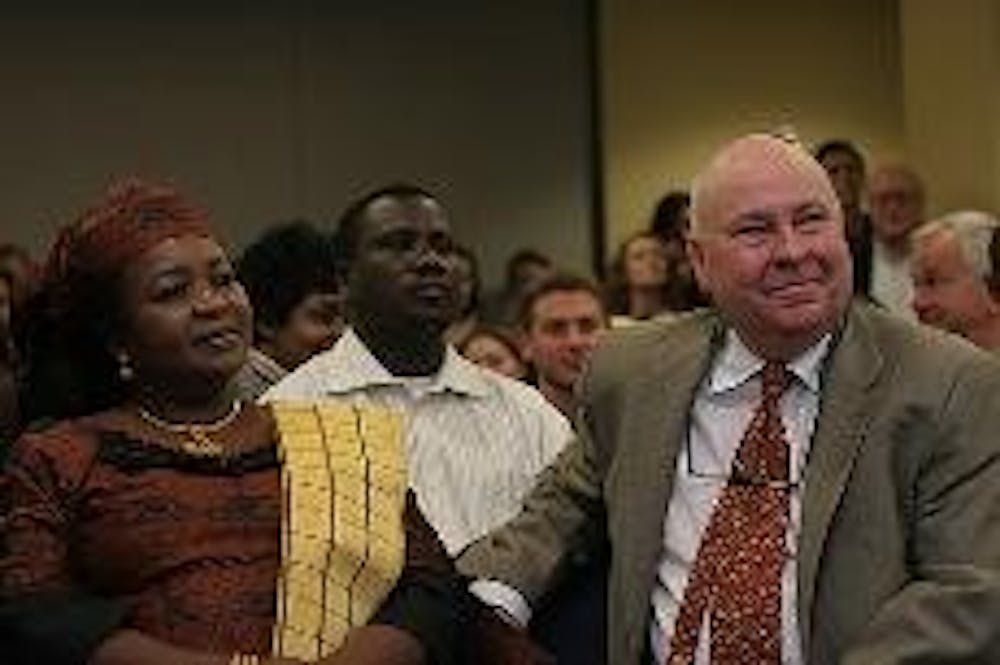Women in Tanzania often have little to no schooling because of early pregnancy or social stigmas - a situation that puts them at a disadvantage, Salma Kikwete, first lady of Tanzania, said Tuesday during a speech in Mary Graydon Center.
Kikwete focused her speech on her efforts to empower girls' and women's roles and statuses. Her organization - Wanawake na Maendeleo (WAMA) - focuses on women's social and economic empowerment.
Kikwete said her program sought innovative approaches to share women's personal stories.
"A peaceful and prosperous world of tomorrow depends on the well-being and state of the child today," she said.
WAMA's role is holistic and starts at the grassroots level. Health is essential to learning; as a result, a major part of WAMA's goal is to implement programs that address the health service, including sexual reproductive programs, Kikwete said.
For every 100 men in the country who are HIV-positive, 122 women also have the virus. Overall, approximately 7 percent of Tanzania's citizens are HIV-positive. WAMA, through government and NGO funding, has also conducted breast cancer awareness campaigns and screening in southern areas of the country. WAMA has assisted between 50,000 and 60,000 women, Kikwete said.
The number of orphans in Tanzania has increased with each passing year, mostly due to the deaths of their HIV-positive parents, Kikwete said. There are currently almost 2 million orphans in the country. These young children have no educational opportunities and will have minimal economic and job prospects as they grow older. She said she wants to expand WAMA to young boys as her funding increases, beginning in the orphanages.
Kikwete said she intends to integrate billboards, radio, television shows and pamphlets into WAMA's efforts to inform women about why it is important to stay healthy, get tested for HIV and stay in school.
Mary Hansen, a sophomore in the School of International Service, said she thinks Kikwete's work is beneficial.
"It's very encouraging that a first lady is taking initiative for empowering women in a country, especially women in leadership positions in impoverished countries," she said.
WAMA's programs include the National HIV Communication and Advocacy Strategy, which aims to reduce the transmission of HIV by providing more information about the virus. Another program - "Treat Every Child as Your Own" - specifically addresses the HIV pandemic, Kikwete said.
Yireh Rivera, a sophomore in SIS, said she liked that AU brought attention women's issues in Tanzania.
"I really liked the general idea of the program," she said. "I wish she would have detailed the logistics, like how would the videos of her organization be distributed to the international community or how students at AU could get involved."
Kikwete said her program sought innovative approaches to share women's personal stories.
"A peaceful and prosperous world of tomorrow depends on the well-being and state of the child today," she said.





